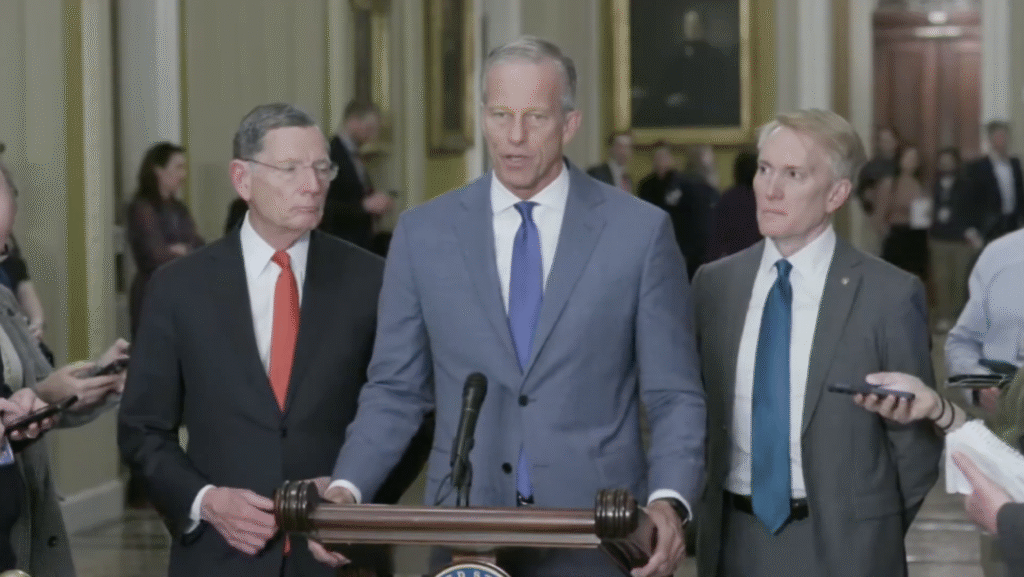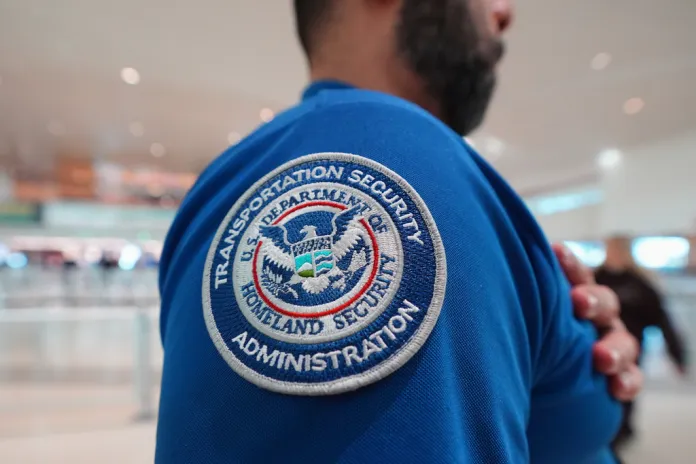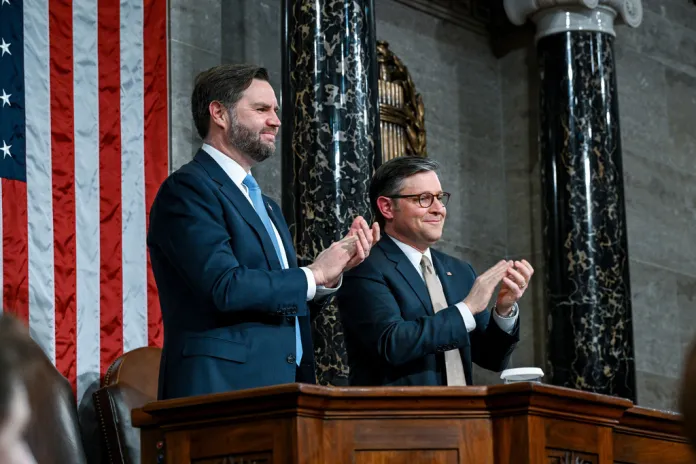Senate Needs To Confirm Religious Freedom Ambassador
The article discusses the significant delay by the U.S. senate in confirming President Donald Trump’s nominees, particularly focusing on the role of the Ambassador at Large for International Religious Freedom. This ambassador plays a critical role in advocating for persecuted religious minorities globally, especially Christians facing severe oppression. The piece highlights the nomination of Mark Walker to this position and underscores the urgent need for Senate confirmation to address ongoing religious persecution.
A key example is the story of “David,” a Nigerian Christian who was tortured and wrongly imprisoned becuase of his faith and evangelism in a Muslim-majority region marked by extreme violence against Christians. Despite his eventual acquittal, many Christians in Northern Nigeria and other countries face brutal attacks and killings, often by Islamist militants inspired by groups like ISIS.
The article stresses that while the U.S. has historically championed religious freedom through legislation like the International Religious Freedom Act,this focus diminished under the Biden administration. The Trump administration aims to renew this priority, with Secretary of State Marco Rubio and others advocating for a return to essential human rights values.
It calls on the Senate to confirm the ambassador promptly and for U.S.foreign policy to maintain religious freedom as a core priority, warning that unchecked persecution abroad could eventually pose threats at home. The piece concludes by affirming the importance of U.S. leadership in protecting persecuted Christians worldwide and encouraging decisive action to implement these policies.
The Senate’s remarkable delay in confirming Donald Trump’s nominees is having real-world effects in areas where the president and his administration are poised to push ahead dramatically. Consider one vital role for the United States on the international stage: the Ambassador at Large for International Religious Freedom.
In April, President Trump quickly nominated pastor and former Congressman Mark Walker to be his International Religious Freedom Ambassador. In Trump’s first term, he made religious freedom into a major U.S. foreign policy priority. The International Religious Freedom Ambassador is the central person who is empowered to advocate for persecuted people of faith, including persecuted Christians, around the world.
As ambassador, Walker would be an advocate for persecuted Christians like David. David (not his real name) is a young Nigerian Christian living within Muslim-majority Northern Nigeria. He is a fervent believer and assists his church by evangelizing others. But early last year, his life changed.
David/Courtesy of ADF International
Militants had discovered that he had evangelized two adult women converts from Islam to Christianity. Their families and communities had threatened their lives, and he helped them to escape to a safe place. For his good works, these militants detained him and the pastor of his church for two weeks, chaining them to the ground and torturing them daily. The militants then handed them over to local police. Police prosecuted David for kidnapping and other charges, and he was convicted and sentenced to nine years’ imprisonment in a three-day sham trial, without legal representation.
Lawyers were ultimately able to obtain bail on appeal for David and have the pastor released before he could be tried. Late last month, after a year and a half of a conviction hanging over him, David was finally acquitted. The state did not even defend its actions. He is now safe with another church community, as are the pastor and two women.
David’s story ended well, but many Christians are not so lucky. Northern Nigeria is the most dangerous place on Earth to be a Christian. Year after year, thousands of Christians are murdered by terrorists and militants, inspired by the same Islamist ideology that gave rise to ISIS. One recent report found that more than 7,000 Christians in Nigeria have been killed by jihadists so far this year alone.
There are scattered lawyers and advocates across the globe trying to help persecuted Christians. But there’s no force on Earth like the United States, and no country more dedicated to the fundamental, God-given right to religious freedom. When we stand up for persecuted Christians, the world notices.
More Christians in Northern Nigeria are killed for their faith than in all other countries combined, but persecution of Christians persists in other countries as well. ISIS may be mostly gone in Iraq, but it’s spreading elsewhere. In the Democratic Republic of Congo, multiple attacks against Christians in churches have happened this past year, most recently in July, with dozens dead. In Mozambique, ISIS-affiliated attackers beheaded Christians and burnt down churches systematically. In June, ISIS attacked the Mar Elias Church in Damascus, Syria.
While the mainstream media barely covers these events, it’s clear that many Americans want the U.S. to do more to stop the persecution of Christians.
Religious freedom has always taken pride of place as America’s “First Freedom.” The U.S. systematized its promotion of religious freedom on the international stage more than 25 years ago when the International Religious Freedom Act was signed into law and unanimously supported in Congress.
Unfortunately, much of this work was diminished during the Biden administration, which turned a blind eye to the persecution of Christians in places like Nigeria.
Thankfully, the second Trump administration is looking to reverse this neglect. The State Department is refocusing on core, fundamental freedoms, along the lines envisioned by the recommendations from the “Unalienable Rights” report developed during the first administration, rather than ever-expanding and controversial pseudo-“rights” claims. Secretary of State Marco Rubio has a long track record of leadership on international religious freedom. And President Trump quickly sent to the Senate his nominee for International Religious Freedom Ambassador, Mark Walker.
It’s time to move things forward. The White House is reportedly looking at all the ways the U.S. can support religious freedom abroad in the light of major attacks occurring seemingly weekly against Christians. One immediate must-do item: The Senate should act as soon as possible to confirm the International Religious Freedom Ambassador, as the stakes for inaction are too high. Without an ambassador, the administration is hobbled in calling out the systematic, egregious, and ongoing persecution happening in places like Nigeria. Congress can further add its voice by supporting existing legislative resolutions that name places where religious persecution, and the persecution of Christians, is most grave.
The International Religious Freedom Office should also maintain its central priority in the human rights framework of the State Department and U.S. foreign policy. Religious freedom, freedom of speech, freedom of association, assembly, and petition — these are America’s core freedoms flowing directly out of our founders’ engagement with the best of the Western tradition, and we should stand firmly in the belief that these are universally good and just freedoms as well.
There are good people around the world, like David in Nigeria, who simply wish to build up their communities in faith and live peacefully and productively. But people like David won’t be able to live peacefully so long as terrorists are allowed to attack Christians wherever they find them, and where governments look the other way. Ignore those problems, and sooner or later, they could come to U.S. shores.
We’ll never be able to fully end persecution, but we can do all we can to try. President Trump’s administration is already putting together all the elements for a powerful foreign policy that prioritizes religious freedom and overcoming the persecution of Christians. Now let’s put that plan fully into action.
Sean Nelson, an international human rights lawyer, is legal counsel for global religious freedom at ADF International.
" Conservative News Daily does not always share or support the views and opinions expressed here; they are just those of the writer."




